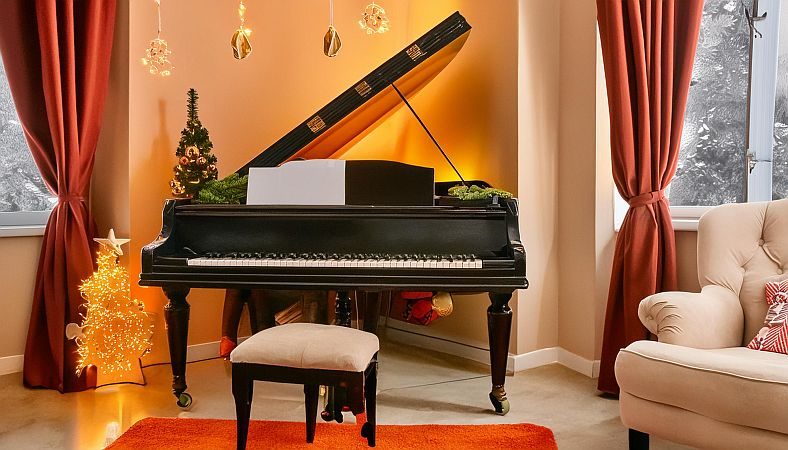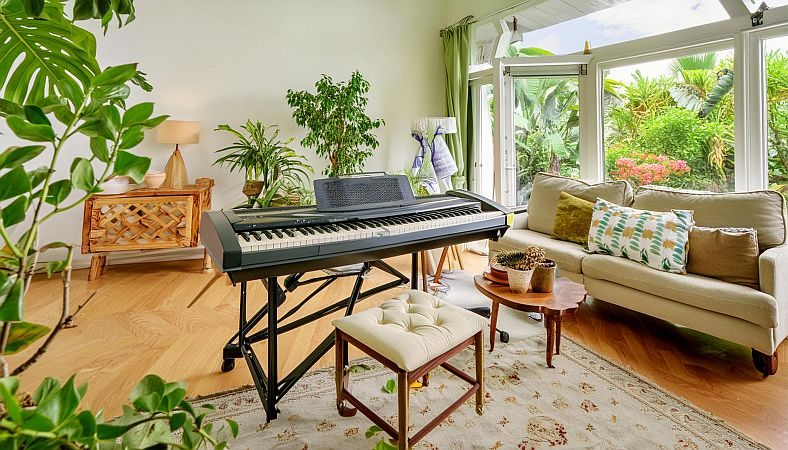Pianos vs. Keyboards: Unveiling the Keys to Your Musical Journey
Pianos vs. keyboards, Do you want to learn to play piano but are stuck between a classical acoustic piano and a feature-packed keyboard? Don’t worry—you’re not alone! Choosing the right instrument is vital to your success; it depends on what kind of music speaks to you and your lifestyle. Let’s delve into the key differences between these two instruments to help you make a sound decision!
The Sound Story:pianos vs, keyboards
Imagine this: press a key on a piano, and a hammer strikes a string, sending rich vibrations through the wooden body. That’s the magic of acoustic pianos, creating a warm, natural sound that resonates throughout the room. Keyboards, on the other hand, are digital maestros. They use clever technology to mimic various instruments, from pianos to violins and funky synthesizers. It’s like having a mini-orchestra at your fingertips!
Size Matters (and Doesn't!)
Acoustic pianos are the grand old dames of the music world, taking up a fair amount of space. But look at the majesty they add to your living room! Keyboards, however, are the life of the party. They come in all shapes and sizes, from tiny portable models that fit snugly into a backpack to full-sized keyboards that mimic the presence of a piano. This makes them perfect for smaller apartments or budding musicians who want to jam on the go. If noise affecting neighbors is a problem, headphones can be used, so practice can go on all night.

feeling the flow of music
Playing the piano is like having a conversation with the instrument. The weighted keys respond to your touch, allowing you to express yourself with subtle variations in volume and tone. Keyboards can also mimic this feel with weighted keys, touch-sensitive keys, hammer action keys, and other types. However, they might differ from an acoustic piano. However, some keyboards offer a lighter touch, perfect for those who prefer a faster, more synth-oriented playing style.
Keeping it in tune
Acoustic pianos are high-maintenance. They need regular tuning by a professional to keep them sounding their best. Keyboards, on the other hand, are low-maintenance. Since they create sound digitally, no tuning is required. Just keep them clean, dry, and dust-free; they’ll be ready to rock whenever you are.
Suitable piano or keyboard for you:
If classical music is your jam, an acoustic piano might be your perfect match. However, keyboards are your playground if you crave diverse sounds and features. With built-in rhythms, accompaniments, and a mind-blowing range of instrument sounds, keyboards are perfect for exploring different musical styles. Keyboards offer a lower cost investment than acoustic pianos, which is the difference between playing the piano and only for some of us.

Piano Teachers and Keyboards
Many piano teachers would only teach on an acoustic piano for many years. Early keyboards were relatively basic, and the feel was nothing like an acoustic piano. Now, almost all piano teachers will teach on keyboards. Keyboards have improved a lot in terms of the sense of the keys and sound. Keyboards now offer a superb alternative to pianos for lessons.
The Final Note on Keyboards and pianos
There’s no right or wrong answer – it all boils down to your musical aspirations and lifestyle. Acoustic pianos offer a timeless experience, while keyboards provide versatility and endless possibilities. Many parents even choose keyboards as a starting point for their children, allowing them to discover their musical passion before committing to a more prominent piano.
So, grab your imaginary microphone, stand in the spotlight, and ask yourself: what kind of music makes your soul sing? The answer will guide you to your ideal instrument, unlocking your musical journey!

